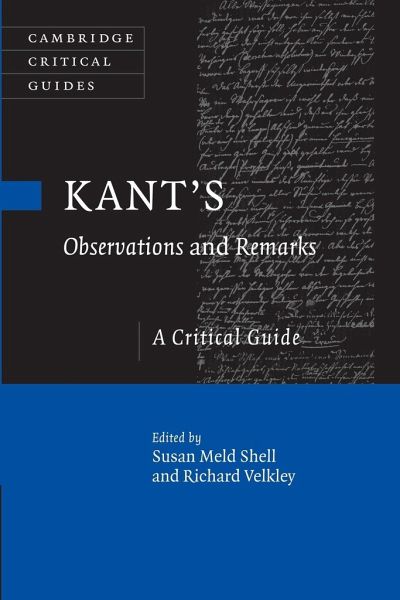
Kant's Observations and Remarks
A Critical Guide
Herausgeber: Shell, Susan Meld; Velkley, Richard
Versandkostenfrei!
Versandfertig in 1-2 Wochen
45,99 €
inkl. MwSt.

PAYBACK Punkte
23 °P sammeln!
Kant's Observations of 1764 and Remarks of 1764-5 (a set of fragments written in the margins of his copy of the Observations) document a crucial turning point in his life and thought. Both reveal the growing importance for him of ethics, anthropology and politics, but with an important difference. The Observations attempts to observe human nature directly. The Remarks, by contrast, reveals a revolution in Kant's thinking, largely inspired by Rousseau, who 'turned him around' by disclosing to Kant the idea of a 'state of freedom' (modelled on the state of nature) as a touchstone for his thinkin...
Kant's Observations of 1764 and Remarks of 1764-5 (a set of fragments written in the margins of his copy of the Observations) document a crucial turning point in his life and thought. Both reveal the growing importance for him of ethics, anthropology and politics, but with an important difference. The Observations attempts to observe human nature directly. The Remarks, by contrast, reveals a revolution in Kant's thinking, largely inspired by Rousseau, who 'turned him around' by disclosing to Kant the idea of a 'state of freedom' (modelled on the state of nature) as a touchstone for his thinking. This and related thoughts anticipate such famous later doctrines as the categorical imperative. This collection of essays by leading Kant scholars illuminates the many and varied topics within these two rich works, including the emerging relations between theory and practice, ethics and anthropology, men and women, philosophy, history and the 'rights of man'.














